Women researchers advancing health and well-being
Fueled by a passion or a personal connection, female researchers in Clemson University’s College of Behavioral, Social and Health Sciences (CBSHS) are making an impact in women’s health – engaging research and outreach in areas including sexual assault nurse examiner training, sexual assault prevention, bystander training, and women’s mental health and empowerment.
Some of these women work together, creating interdisciplinary teams between the college’s seven departments and with outside organizations. Though the research is varied, CBSHS Dean Leslie Hossfeld says these researchers are focused on one thing: making a positive change in the community.
“The research of our faculty provides empirical findings that inform programs and outreach to positively influence health outcomes,” Hossfeld said. “CBSHS frames health broadly, examining not only physical and mental health, but economic, community, and regional health and well-being. All of these research projects are having an influence in South Carolina and beyond and contribute significantly to our mission of building people and communities.”
Here are just a few overviews of CBSHS’s research and impact on women’s health and well-being.
Evaluating campus sexual assault prevention programs
Psychology faculty members Heidi Zinzow and Martie Thompson have researched the risk factors for sexual assault and violence against women and barriers that prevent victims from seeking treatment. They have also developed research-informed suggestions for improving bystander intervention programs, which includes tailoring strategies to various audiences and reducing risk for violence, victimization and trauma-related mental health problems.
Their most recent work has focused on developing and testing the efficacy of sexual violence prevention programs, including an online program for student-athletes and a digital app for college students in general. The Department of Defense recently invited them to share their work to inform sexual violence prevention on college campuses at the National Discussion on Sexual Assault and Sexual Harassment at America’s Colleges, Universities and Service Academies.
Thompson is also working with sociology assistant professor Heather Hensman Kettrey on research related to the most effective strategies for preventing campus sexual assault. Funded by the Office on Violence Against Women, the project involves conducting a systematic review of the literature and a meta-analysis of research examining college sexual assault prevention programs’ effectiveness – focusing on the sexual assault attitudes and behaviors among college students to get a big picture of what types of prevention programs work for different student populations.



(L-R) Heidi Zinzow, Martie Thompson, Heather Kettrey
THE MOTIVATION BEHIND THE RESEARCH
Zinzow and Thompson have a calling to engage in sexual violence prevention research, borne from their experiences seeing the trauma up close.
Throughout my life, I have been affected by the prevailing social norms that disempower and promote violence towards women. I was inspired by friends and loved oones who were affected by sexual violence, and when I began volunteering in sexual and domestic violence crisis centers, I developed a passion for working in this field.
HEIDI ZINZOW
Thompson’s work at a victim witness assistance program in graduate school motivated her interest in understanding what factors helped and hindered a victim’s recovery.
“After years of studying the psychological consequences of victimization, I used my public health training to expand my focus to prevention of sexual assault,” she said.
Training sexual assault nurse examiners, expanding resources for victims
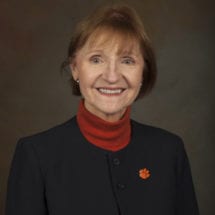
The training program is led by a multidisciplinary team of Prisma Health nurses and emergency services leaders and nursing professor Ann Wetsel. In the first year of the program offered through Upstate Area Health Education Center, 22 nurses were trained, and four nurses earned national SANE certification, more than doubling the number of certified nurses in the Upstate. Since March 2019, Prisma Health emergency rooms have had 24/7/365-day coverage for victims. After the success of the program’s first year, nurses from other hospitals across the state are now coming to Upstate AHEC to take the SANE training course. The team also conducted a research project to reduce burnout in SANE nurses.
Helping mothers and children: neonatal abstinence syndrome research
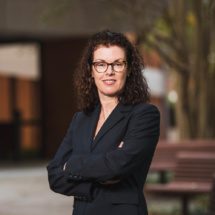
For nearly a decade, CBSHS Associate Dean Rachel Mayo, Associate Vice President of Health Research Windsor Westbrook Sherrill and Department of Political Science Associate Chair Lori Dickes have been working with Prisma Health pediatrician Jennifer Hudson to help mothers with opioid use disorder and their babies. In 2003, Hudson began offering the option of prophylactic treatment to prevent withdrawal symptoms in at-risk newborns, something that had not been done before. Hudson’s collaboration with Mayo, Sherrill and Dickes helped create the Managing Abstinence in Newborns (MAiN) project at Prisma Health.
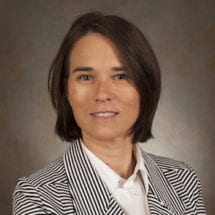

The team recently received funding for a new study to objectively measure the stress response in infants with neonatal abstinence syndrome (NAS). The study will use a skin conductance tool to assess whether early-treated newborns have a different stress response than those managed without pharmacotherapy. Identification and measurement of NAS are currently performed using a highly subjective scoring instrument that may not accurately reflect the infant stress response. The team is also planning to use a more objective method better to understand an infant’s stress during this treatment.
Helping mothers overcome substance abuse, reducing stigma in health care and the community
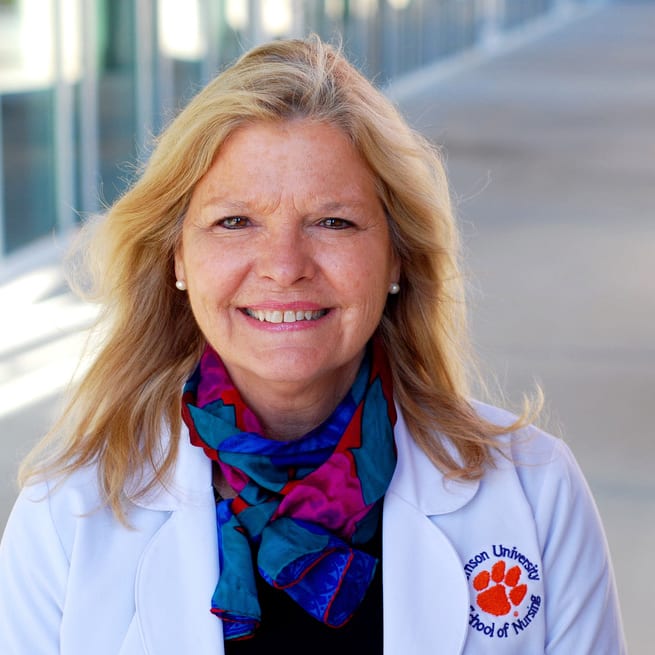
Mary Ellen Wright, a School of Nursing assistant professor, works with women in complex health situations such as perinatal substance use disorder and domestic/interpersonal violence. She also provides support for mothers and women in rural regions with substance use disorder. Her research intends to bring to the public and health care professions awareness of the challenges of help-seeking in these areas that affect women and promote social support while decreasing stigma towards these vulnerable populations.
Her current research in the School of Nursing Center of Research in Health Disparities and the Prisma Health Addiction Research Center includes work on three Substance Abuse and Mental Health Services Administration (SAMHSA) grants that provide education to medical students, nurse practitioners and social workers concerning substance use disorder. The education modules in one of the grants have been implemented in 10 universities across the nation. Through another grant, 260 medical and nurse practitioner students have been educated in substance abuse.
Empowering girls, teaching physical and mental health
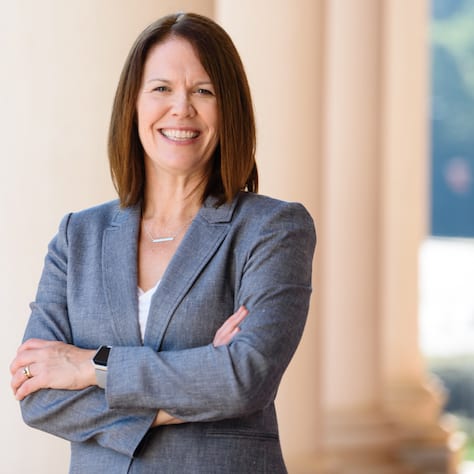
Denise Anderson, CBSHS associate dean for undergraduate studies, faculty affairs and inclusive excellence, leads a camp for middle school girls focused on self-esteem, self-efficacy, body image and nutrition, called Finding Your Voice. The camp introduces girls to physically active outdoor recreation activities they may or may not have participated in before, as research shows girls and women are more wary of outdoor recreation because of safety concerns. The activities include kayaking, backpacking, rock climbing, high ropes, yoga and self-defense. Anderson’s Creative Inquiry students lead the camp as counselors and role models for the girls and serve as lead researchers evaluating the camp’s effectiveness.
Watching the middle-school girls grow during camp each of the past eight years has done nothing but reinforce to me the power of recreation, strong female role-modeling, and the outdoors in making an impact at such a critical point in the girls’ lifespan.
DENISE ANDERSON
Anderson’s recently published article about the camp revealed that because of the various activities, participants felt an increase in their physical activity, self-efficacy or ability, and an increase in their self-confidence and the building of resiliency skills, she said.
Researching the dehumanization of Black girls in play spaces
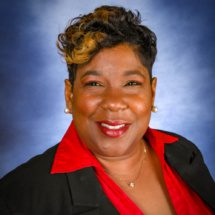
Parks, Recreation and Tourism Management professor Corliss Outley leads the REYSE Collaboratory at Clemson University, which focuses on the study of race, ethnicity, youth and social equity. Part of her research focuses on how traditional approaches towards leisure and recreation spaces contribute to the dehumanization of youth, particularly Black girls, and how those spaces and activities can be deconstructed to become sources of hope, healing, agency and justice.
Projects include Rites of Passage and A.R.T.+ Circle programs, which use a social justice youth development framework to emphasize the importance of helping youth recognize traumatic histories associated with factors such as racism, helping youth heal through engagement in culturally appropriate programs and services, and assisting them in developing a critical consciousness to combat systems of oppression in order to move forward toward adulthood.
Before we can influence change, we need to understand how to disrupt and dismantle policies and practices within the leisure studies field that perpetuate oppression in the lives of Black girls and women.
CORLISS OUTLEY
Exploring the benefits of breastfeeding in infants’ health

Nursing associate professor and pediatric nurse practitioner Heide Temples’ research focuses on obesity reduction, breastfeeding and opioid use disorder in women. Her current research builds upon her past human milk studies showing that breastfeeding for four to six months decreased the risk of Type 2 diabetes and obesity in children as they aged. She is currently analyzing genetic markers to understand how nutrition in the first years of life influences metabolic programming. The impact of this research could help better inform mothers on the benefits of breastfeeding and how it specifically helps their children’s health.
Temples became passionate about this research after noticing that breastfed infant patients were healthier than their counterparts who consumed non-human milk. They had fewer infections (ear infections, respiratory, and GI infections) and fewer rashes on their skin, and they gained the appropriate amount of weight.
“My ultimate goal is to identify the biological mechanism responsible for healthier children following human milk intake in the first year of life,” she said. “This allows us to study the ‘nature vs. nurture’ question, and how our environment influences our genes.”
Female empowerment, sexual assault research on a global scale

Lauren Duffy, associate professor in the Department of Parks, Recreation and Tourism Management, has found that looking at women’s health and well-being requires a broader understanding of the social structures in which women live and work. Her research considers the connection between the empowerment of women in the Global South through tourism development. She has discovered that when tourism thrives in rural, under-resourced areas, it creates jobs and income-earning opportunities that are seen as culturally appropriate for women, such as cooking, cleaning, caretaking and hospitality. However, this opportunity for work, which can lead to economic and social independence, can also create conflict as they attempt to negotiate shifting roles and identities in their families and communities.
Any time you have shifting power dynamics, there is inevitably someone who ‘gains’ power, and someone who ‘loses’ it. Responding to the practical needs of women and men with gender-aware development frameworks is critical.
LAUREN DUFFY
Duffy’s work in the Dominican Republic has shown that increased tension between family partners often occurs due to role conflict. She found evidence that increased levels of domestic violence and femicide coincide with the presence of the sex tourism industry prevalent across coastal communities in the country.
Understanding food insecurity in the pandemic and how public policy can help

A national survey conducted in late March 2020 found that 38.3% of respondents reported moderate to high levels of food insecurity. Three researchers are working to find out how various government policies in response to COVID-19 affect food insecurity. Funded by the National Science Foundation and in partnership with NC State University, CBSHS Dean Leslie Hossfeld, Department of Sociology, Anthropology and Criminal Justice faculty member Catherine Mobley and Department of Public Health Sciences faculty member Sarah Griffin are interviewing and collecting photovoice data with a diverse group of poor and working-class families in rural and urban counties across four U.S. states.

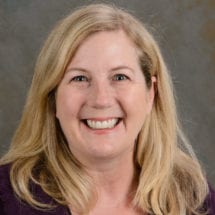
The goal is to understand how families’ food practices have shifted due to COVID-19 and identify the processes that buffer some families from food insecurity but not others. Currently, the team is interviewing women in households to understand how families in Allendale County, South Carolina, manage food and wellbeing during COVID-19. This study’s findings could illustrate how state and federal responses to the pandemic and food insecurity help address families’ needs and exacerbate or mitigate families’ struggles.
Exploring body image and its impact on mental health
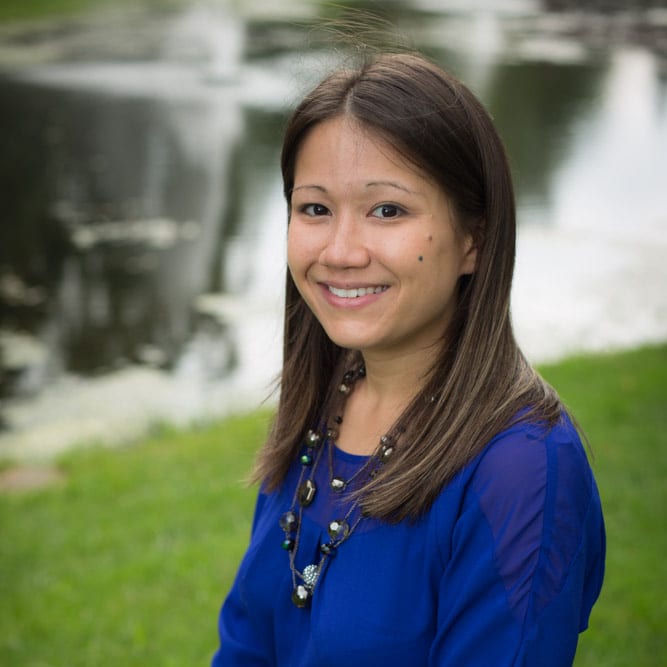
Department of Communication Assistant Professor Kristen Okamoto focuses her research on food behaviors and physical activity. Currently, she is studying the effect of body image and physical communication in group health classes and how that impacts women’s mental health. She has interviewed women regarding their experiences in group fitness settings to learn how women communicate in these spaces, what their bodies communicate in these spaces, and how society understands the performance of gender in these spaces.
From a mixture of interview and participant observation data, she has found that the fitness instructor is key in guiding participants and helping them negotiate their own bodies, since participants in the group rarely remain the same from class to class. Okamoto’s research has the potential to inform women how their bodies may be subject to surveillance from themselves or others in these spaces, and how negative body image can lead to harmful effects such as eating disorders, anxiety and depression.
